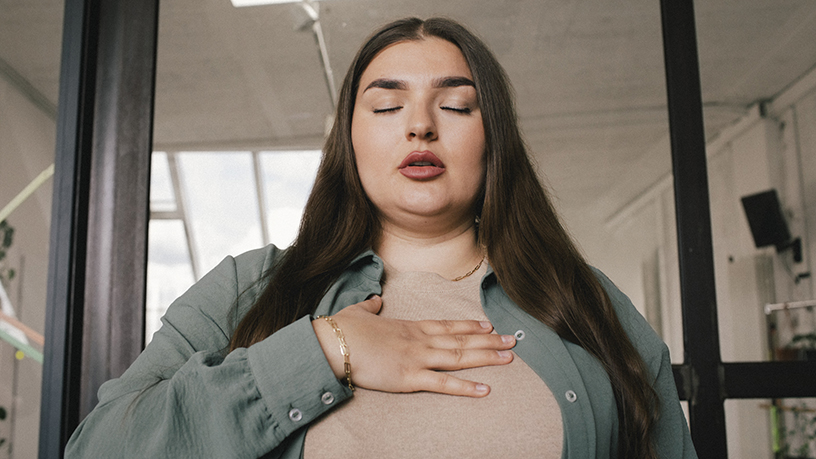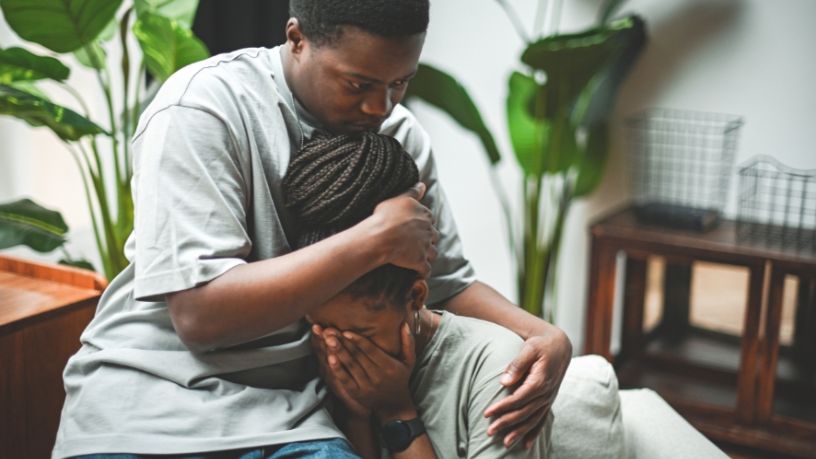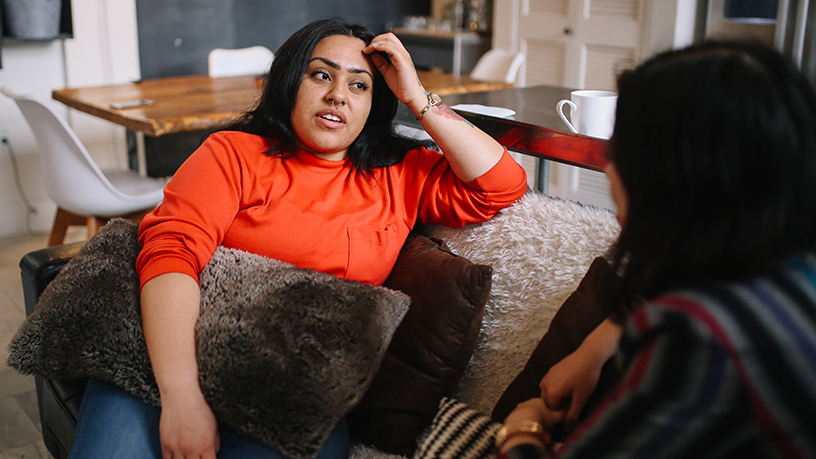On this page
Key takeaways
- A health diagnosis can result in feelings of anxiety.
- It’s normal to feel anxious when you’re dealing with an unknown situation.
- There are effective ways of dealing with post-diagnosis anxiety.
Being diagnosed with a health condition commonly results in feelings of anxiety.
This can manifest in lots of different ways. You might find it hard to sleep or to concentrate, or you might experience a general feeling of unease or panic that won’t go away.
If you’re living with constant pain, it doesn’t just impact your body, it affects your mental health too. Recent research shows that around 4 in 10 adults with chronic pain also experience anxiety or depression.1
Coming to terms with the notion of illness, side effects from treatment or becoming dependent on others can be a big emotional shift, and it's crucial to acknowledge these feelings and find the right support to manage them.
What is post-diagnosis anxiety?
Post-diagnosis anxiety refers to the fear, worry, and distress you might be feeling after receiving a diagnosis of a serious illness. It is often driven by a fear of the unknown.
“Following the diagnosis of a serious illness, you might find yourself focusing on possible negative outcomes,” says psychologist Nick Petrovic. “Some people may experience feelings of helplessness or hopelessness.”
Anxiety alerts our bodies to a potential threat, so this reaction is a normal and healthy part of human behaviour.
“However,” says Petrovic, “sometimes it can become a problem and stop you from living everyday life in the way you want. Getting on top of anxiety can improve your ability to function, and can also improve your ability to address your health diagnosis and focus on your wellbeing.”
How do I know if I’m anxious or unwell?
Anxiety symptoms may be mild or severe. They may be experienced suddenly for a short time (acute anxiety) or over an extended period (chronic anxiety).
“Anxiety symptoms can be particularly confusing for people with serious illnesses,” says Petrovic “Some illnesses, as well as the medicines or treatments for them, can produce similar feelings and reactions to when you’re feeling anxious,” he explains. “The best thing to do is speak to a doctor about how you’re feeling.”
Monitoring your physical and emotional state means you can give your doctor all the information they might need to help you.
Look out for the following symptoms:
Acute anxiety
- Experiencing intense fear or dread
- Feeling detached from yourself or your surroundings
- Heart palpitations and/or rapid heartbeat
- Being short of breath
- Chest and/or abdominal pain
- Feeling dizzy, light-headed or suffocated
- Chills, sweating and trembling
- Nausea, diarrhoea, heartburn
- Changes in appetite
Chronic anxiety
- Excessive worrying
- Muscle tension
- Irritability
- Fatigue
- Insomnia
- Restlessness
- Difficulty concentrating
- Indecision
How do I deal with post-diagnosis anxiety?
It can be difficult to distinguish between normal levels of worry and more serious anxiety symptoms following a diagnosis. If any of your symptoms are affecting your daily life, speak to your doctor.
Getting on top of anxiety can improve your ability to address your health diagnosis and focus on your wellbeing.
Self-help therapies for anxiety
Psychological treatments for anxiety
Medication for anxiety
Medication for anxiety must be prescribed by a doctor. Anti-anxiety medications are usually only used for severe anxiety in conditions such as generalised anxiety disorder (GAD), social phobia and panic disorder.
Antidepressants can also help with anxiety, as they can regulate the changes in brain chemistry that happen during anxiety. Selective Serotonin Reuptake Inhibitors (SSRIs) and Serotonin and Noradrenaline Reuptake Inhibitors (SNRIs) are sometimes used to treat anxiety.

Resources
If yours or someone else’s life is in danger, dial 000 immediately.
Lifeline Australia offers 24/7 crisis support online and on the phone at 13 11 14.
Beyond Blue offers 24/7 mental health information and support online and on the phone at 1300 224 636.
13YARN offers a national crisis support line for First Nations People on 13 92 76. The support line is available 24/7.
1800Respect is a 24/7 support service for people experiencing domestic violence. You can find support, counselling and information online or on the phone at 1800 737 732.
PANDA (Perinatal Anxiety & Depression Australia) supports the mental health of parents and families online and on the phone at 1300 726 306.
MensLine is a counselling service for men. You can get 24/7 support online and on the phone at 1300 78 99 78.
QLife offers LGBTQIA+ peer support online and over the phone on 1800 184 527.

At Bupa, trust is everything
Our health and wellbeing information is regularly reviewed and maintained by a team of healthcare experts, to ensure its relevancy and accuracy. Everyone's health journey is unique and health outcomes vary from person to person.
This content is not a replacement for personalised and specific medical, healthcare, or other professional advice. If you have concerns about your health, see your doctor or other health professional.
You might also like
Hack your anxiety: 5 science-backed ways to help find calm now
Getting help for anxiety is important. Here are some ways to help manage your anxiety at home.
What's the difference between anxiety and depression?
Anxiety and depression are common mental health conditions in Australia. Learn about the different signs and symptoms and where to get help.
A step-by-step guide to managing panic attacks
Panic attacks can happen at any time. Discover practical calming techniques and breathing exercises to manage a panic attack and ease your symptoms.
How to help a friend with anxiety
Anxiety disorders can be tough on friendships. Learn what to say and how to help.





